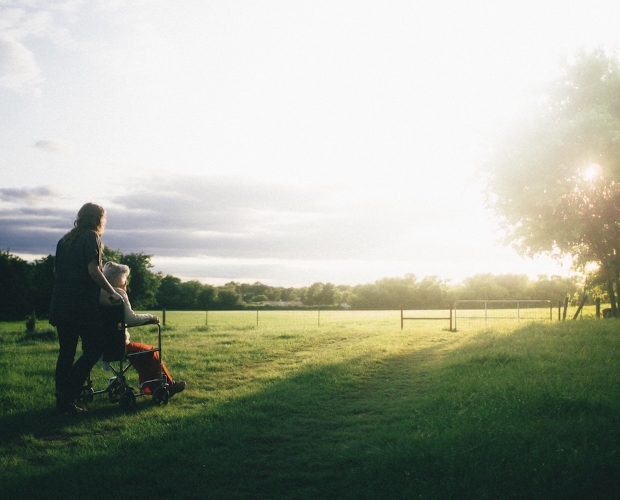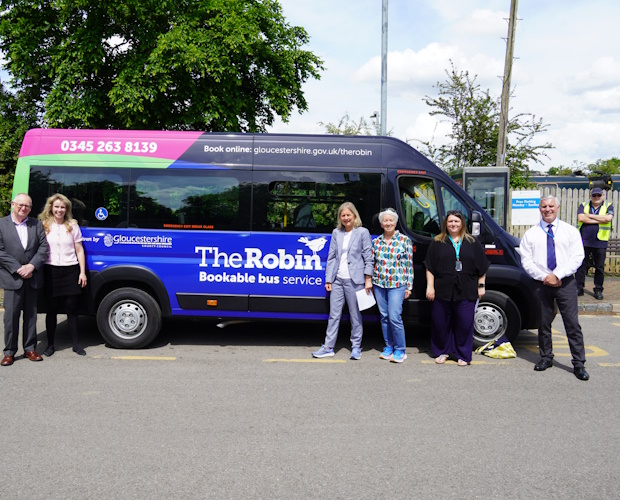T: 01822 851370 E: [email protected]
Visit RSN Survey about life in rural England to find out more.
Download the presentation from this event below:...
England’s largest councils are urging the government to delay the introduction of the cap on adult social care costs, warning that the reforms are impossible to implement by October 2025 due to a staggering £30 billion funding shortfall. The County...
The Rural Services Network (RSN) is pleased to share that we held two highly successful BT Digital Switchover information sessions last week. These exclusive RSN membership events engaged over 260 delegates, including representatives from town, district, and county councils across...
The Rural Services Network is pleased to highlight a groundbreaking development in the healthcare landscape of Humber and North Yorkshire. The local NHS has announced the launch of a Centre of Excellence for Frailty, a dedicated initiative aimed at revolutionising...
Community Catalysts, led by Pip Cannons and Helen Allen, are revolutionising health and social care in hard-to-reach areas through community micro-enterprises. This groundbreaking initiative, highlighted by The Local Government Association, aligns closely with the Care Act's principles, promoting personalised, community-focused...
A recent report by Age UK, It's a Struggle to be Seen, sheds light on the difficulties faced by those aged over 50 in accessing health and social care services. The findings resonate strongly with the experiences of rural residents,...
As we support The Marmalade Trust and mark Loneliness Awareness Week, it is crucial to shed light on the unique challenges faced by rural communities in combating isolation and loneliness. In rural areas, geographical isolation, limited access to services, and...
The recent expansion of the Robin bookable bus service into three new areas in Gloucestershire marks a significant step forward in enhancing transportation options for rural communities. This initiative, which allows residents to book bus journeys up to an hour...
The Rural Services Network, in partnership with BT, is pleased to announce an important event designed specifically for Local Authority Councillors to raise awareness about the upcoming digital telephone line switchover. Due to high demand and the initial session selling...
BT Group has announced significant adjustments to its digital switchover programme, which aims to transition the UK's traditional analogue landlines to digital Voice over IP (VoIP) technology by January 2027. The revised approach will result in a single switch for...
NEWSLETTER
Sign up to receive all our latest news and updates.
HOT TOPICS
Amid reduced public spending, fair resource allocation across regions is crucial. Despite a population larger than Greater London, rural areas receive significantly less funding for essential services, even though delivering these services in rural areas is more expensive.
Economic growth is widely acknowledged as essential for national wealth and prosperity and is a priority for political parties. Rural economies, employing millions and home to a higher proportion of small businesses, have potential for growth if barriers are removed.
Rural residents face distinct healthcare challenges, including limited access to transport, longer distances to medical facilities, an aging demographic, housing inadequacies, digital connectivity gaps, and difficulties recruiting health and care workers.
Rural communities are grappling with a severe affordable housing crisis, marked by high house prices, a lack of affordable housing, elevated living costs, and lower incomes, threatening their sustainability and vitality.
Transport is vital for the quality of life and economic health of rural areas, yet it faces challenges such as infrequent public bus services and less Government funding compared to urban regions.
Rural areas, encompassing a substantial portion of England's population and land, play a pivotal role in combating climate change and achieving the net zero target.
In an increasingly digital world, the lack of robust digital infrastructure in rural areas severely limits access to crucial services and stifles economic growth.
A future-focused vision for rural communities involves not just building the right homes in the right places but also ensuring thriving, sustainable communities.
SIGN UP TO OUR NEWSLETTER
Sign up to our newsletter to receive all the latest news and updates.











